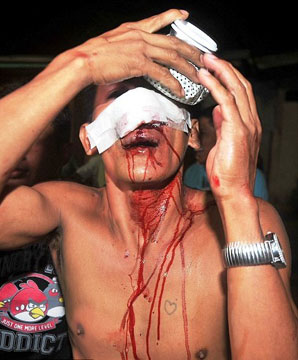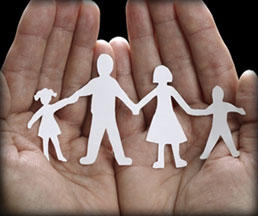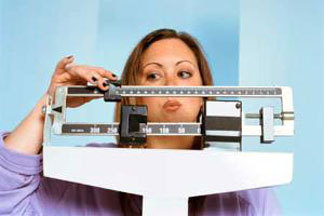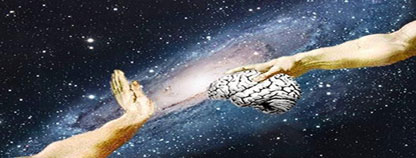|

Let's avoid common accidents this season
By Carol Aloysius
With the New Year looming ahead of us in two days, we can expect to
see many accidents whether on the roads, inside homes, at hotels and
parties. They are caused mostly by drivers under the influence of
alcohol, or brawls that occur inside homes, again due to excessive
intake of liquor or violence that spills over from too much alcohol
intake while partying or dancing at hotels.
 Many of these accidents which involve young and old alike, and have
serious consequences (in some instances fatal), are preventable. They
can be avoided if the offenders exercised more self control over
themselves. This is especially so because they are more vulnerable to
the unhealthy habits they are addicted to, at this time around. Many of these accidents which involve young and old alike, and have
serious consequences (in some instances fatal), are preventable. They
can be avoided if the offenders exercised more self control over
themselves. This is especially so because they are more vulnerable to
the unhealthy habits they are addicted to, at this time around.
In addition, we have school children on holiday getting injured while
playing, climbing trees, taking part in holiday sports meets, or
neighbourhood cycling races.
There are children who also drown while picnicking near a river and
wading or bathing in dangerous areas, especially when they can’t swim.
Children also get burn injuries from lighting fireworks to greet the New
Year.
Then there are those who get electrocuted while trying to attach
electrical lights to live wires, using telephone wires and electric
wires.
Others fall from high ladders when trying to attach some decoration
on roof tops or high roof ceilings.
How can these accidents be prevented? How can they be treated? What
are the golden rules to follow when treating the victims?
The Sunday Observer spoke to the Deputy Director, National Hospital,
Sri Lanka, Accident and Orthopaedic Services Dr Kapila Wickramanayake to
find answers to these questions.
Excerpts…
Q. The New Year is round the corner and is a season for merry
making. As a spokesman for the Accident Services, tell us what kind of
accidents usually occur at this time around?
A. The most common accidents take place on the roads.
Q. How, and why?
A. They occur when drivers speed on the roads under the
influence of liquor. Many are careless of the serious and often fatal
consequences of their reckless driving. Motorists using mobiles, driving
with one hand, listening to loud music with their ears plugged to ear
phones, getting distracted by posters and billboards they pass also
cause accidents. Road accidents also occur at this time, because the
streets are crowded with pedestrians. So more pedestrians are at risk.
Q. Who are the main culprits?
A. Motorists, bus drivers, Three Wheelers. Motorists by
speeding under the influence of liquor as I mentioned. Bus drivers who
also drive under the influence of liquor, or are inexperienced and
haven’t got their license, those who speed because they are in a hurry
to get to their destinations and swerve without warning into lanes not
reserved for them, or stop in the middle of the road, instead of the bus
stand demanding that their passengers get off the bus in the thick of
traffic, or don’t observe road rules, even crashing through the red
light. Three wheelers cause accidents by jumping lanes without warning,
and by speeding.
Q. What about motor cyclists?
A. Motor cyclists also cause accidents by speeding. Many of
them are young persons out for a party and in a hurry to get to their
destination. Some are already drunk when they start out. So they too
are very vulnerable at this time and the cause for many accidents.
Q. What other likely accidents occur at this time of the year?
A. From fireworks. Children are the main victims, when they
try to light crackers without supervision or light up sparklers or try
to ignite some dangerous fireworks on their own. They can end up with
mild to moderate to severe burns that may have permanent impact on their
health. So parents have to be extra vigilant.
Fortunately, due to our awareness raising programs, there was no
significant increase in the number of accidents caused by fireworks last
year.
We hope it will be the same this year as well. Unfortunately, I
cannot say the same about road accidents which usually record a
significant increase whenever there is some festival like the New Year.
Q. Is domestic violence another cause for more people being
admitted with injuries to your ward during this period?
A. Yes. We do have more victims of violence coming to our
wards during this festive season. The culprits are mostly husbands who
beat up their wives with blunt instruments such as knives, forks,
scissors, hammers, garden tools or with their fists or by kicking them.
We also have several instances of interpersonal violence during a family
get-together when and arguing with blunt instruments that takes place
over a small misunderstanding.
Q. Any other causes?
A. At this time more victims come to us suffering from
electric shocks, after getting electrocuted by trying to light up their
illuminations.
If the wires are faulty they can get an electric shock.
Then we have victims of falls, when people try to attach some
decoration to a high ceiling for example, or those climb high ladders or
scaffolding or even trees to place a decoration on top of their roof
tops.
Treatment
Q. So how should 1) by standers treat these persons and 2) how
does the Accident Service treat them?
A. The first line of treatment that a bystander should give a
road accident victim, is to first contact the nearest hospital or the
Police emergency number. Next, if the patient appears to have injured
his spine or neck, or back, he/she must not be moved. When moved,
special precautions should be taken to lift him on a stretcher lying
flat on his back.
He should not be raised or his spine bent as it can cause secondary
injuries which could be irreparable. It is best to transport the patient
in a van or ambulance so that the patient can be stretched lying flat on
the seat.
On No account should such a patient be sent to hospital in a three
wheeler, which is the common mode of transport currently used however
serious the patient is.
Q. What about an injury on the leg or hand. Do the same rules
apply?
A. In the case of injuries on the leg or hand, pressure should
be applied to the wound if there is bleeding to stop the bleeding.
Thereafter the patient should be taken to hospital in the most
convenient vehicle even a three wheeler.
Q. What about victims of fireworks?
A. The first thing to do is not to panic. First take the
patient to the tap and hold the burned area under flowing water for
about half an hour to prevent second degree burns.
As there is no way to assess the burn degree at home, they should do
this even if a patient is obviously suffering from more serious burns.
Do this to any part of the body that is burnt.
Q: What should they not do?
A: They should NOT apply so-called home remedies such as
butter, oil, tooth paste, aloe-vera etc, as these could infect the
wound. Keep the burnt area open and transport the patient to the nearest
health facility immediately.
Q. What happens at the Accident ward?
A. First the doctor will examine the patient. We have enough
doctors working round the clock to attend to patients and more during
the season.
Thereafter they will be directed for the kind of treatment they need,
after assessing their injuries.
Q. What are the chances of recovery for these patients?
A. We can usually help mitigate most burns including injuries
from falls, road accidents etc, if the patient is first mobilised
properly, given the right treatment at home and sent by the most
appropriate transport mode to the hospital.
Q. Your message to the public?
A. For all motorists I will strongly emphasise the following
rules: Avoid driving under the influence of alcohol.
2) Avoid taking excessive alcohol during this time .
3) Don’t drive while using your mobiles, or listening to music on
your ear phones. Concentrate on the roads. Keep your eyes focused on the
road all the time. Even a second's distraction can cost the life of a
pedestrian.
4) above all, DON’T SPEED.
For motor cyclists my advice is that they always wear a helmet and if
they are taking their wives and children, to see that they all wear
helmets that are correct for their size.
For pedestrians I say observe road rules. Use only pedestrian
crossings to cross roads. If you go out at night, wear a light coloured
outfit as motorists may not otherwise see you in the dark.
Q. Any emergency lines they should contact?
A. The National Hospital 2691111 or the Police Emergency
number 119
Family centred approach reduces weight in South Asians
Modest
lifestyle changes made by South Asian families could help improve their
health and well-being, a clinical trial shows.
 Making moderate improvements to diet and levels of physical activity,
gave trial participants a better chance of losing enough weight to lower
their risk of developing type 2 diabetes. The study, carried out in
participants’ homes as opposed to hospital Making moderate improvements to diet and levels of physical activity,
gave trial participants a better chance of losing enough weight to lower
their risk of developing type 2 diabetes. The study, carried out in
participants’ homes as opposed to hospital
clinics, is the first of its kind in the UK to look specifically at
South Asian cultures. Patients lost weight reduced their hip and waist
measurements and there were indications that they were less likely to
become diabetic by the end of the trial, which focused on people of
Indian and Pakistani-origin.
Researchers say that ethnic background and culture play an important
role in shaping attitudes and behaviours towards diet and exercise.
National guidelines show that South Asian people place strong
emphasis on family life and eating together. From a young age, South
Asians are sensitive or at risk of health problems linked to obesity.
Men from Pakistani and Indian communities are three times more likely to
develop type 2 diabetes than the general population - despite having
similar Body Mass Indexes, scientists say.
The three-year trial monitored 171 people of Indian and Pakistani
background living in Scotland who were already at high risk of diabetes
as shown by blood tests done at the start of the trial.Participants were
given detailed advice by dieticians and offered culturally-appropriate
resources to help them manage their weight through diet and exercise.
At the same time, control groups were given basic advice, which was
not culturally specific.
Prof Raj Bhopal, said: “These differing approaches show us that a
more family centred strategy, with culturally tailored lifestyle advice
can produce significant benefits to people's health through weight
loss.”
- MNT
Modest weight loss reduces risk of heart disease, diabetes in
middle-aged women
Modest weight loss over two years in overweight or obese, middle-aged
women may reduce risk factors for heart disease and diabetes, according
to research published in the Journal of the American Heart Association.
 In a study of 417 women participating in weight loss programs for up
to 24 months, those who sustained a 10 percent or more loss of their
body weight for two years reduced their total cholesterol, LDL “bad”
cholesterol, HDL “good” cholesterol, triglycerides, insulin, glucose and
inflammation markers. Women who had the highest levels of risk at the
start of the study benefited the most from modest weight loss. In a study of 417 women participating in weight loss programs for up
to 24 months, those who sustained a 10 percent or more loss of their
body weight for two years reduced their total cholesterol, LDL “bad”
cholesterol, HDL “good” cholesterol, triglycerides, insulin, glucose and
inflammation markers. Women who had the highest levels of risk at the
start of the study benefited the most from modest weight loss.
“It is challenging to lose weight, but if women commit to losing 10
percent of their body weight and sustain that over time, it can have a
large impact on overall risk factors associated with heart disease and
diabetes,” said Cynthia A. Thomson, co-author in Tucson.
The women, an average 44 years old and weighing nearly 200 pounds at
the start of the study, were recruited within the communities of the
Universities. Factors that may affect creeping weight gain in
middle-aged women include sedentary jobs, repeated pregnancy and the
transition to menopause.
In the end, a large percent of middle-aged American women find
themselves weighing much more in their forties than they weighed in
their teens, Thomson said.
Women in short-term weight loss programs usually do better with
weight loss in the first six months and then they start to rebound,
researchers said.
“Our study revealed the need for healthcare providers to provide
women with longer-term support for weight control.
It seems to pay off in terms of modifying risk factors for
obesity-related disease,” Thomson said. “The good news is that when you
lose weight long-term, you just don't move to a smaller dress size, you
are actually moving these risk factors markedly and likely reducing your
risk of heart disease and diabetes,” Thomson said.
- MNT
Brain's thickness associated with religion and spirituality
The importance of religion or spirituality to a person appears to be
associated with the thickness of certain brain regions, according to a
new study.
 Researchers conducted a familial study of 103 adults (ages 18-54
years) who were the second- or third-generation offspring of depressed
or non-depressed study participants. Researchers conducted a familial study of 103 adults (ages 18-54
years) who were the second- or third-generation offspring of depressed
or non-depressed study participants.
Religious or spiritual importance and church attendance were assessed
twice over five years. The cortical thickness of the brain was measured
with magnetic resonance imaging at the second time point.Study findings
indicate that importance of religion or spirituality, but not the
frequency of church attendance, was associated with thicker cortices in
some regions of the brain, independent of familial risk for depression.
Also, the effects of the importance of religion or spirituality on
cortical thickness were stronger in the group at high familial risk for
depression than in the low-risk group, especially in a brain region
where a thinner cortex may be associated with a familial risk for
developing depressive illness Although a high frequency of attendance at
religious services was associated with a high personal importance of
religion or spirituality, the association between attendance and
cortical thickness was not significant, according to the study.
“We note that these findings are correlational and therefore do not
prove a causal association between importance and cortical thickness,”
the authors conclude.
- MNT
|

